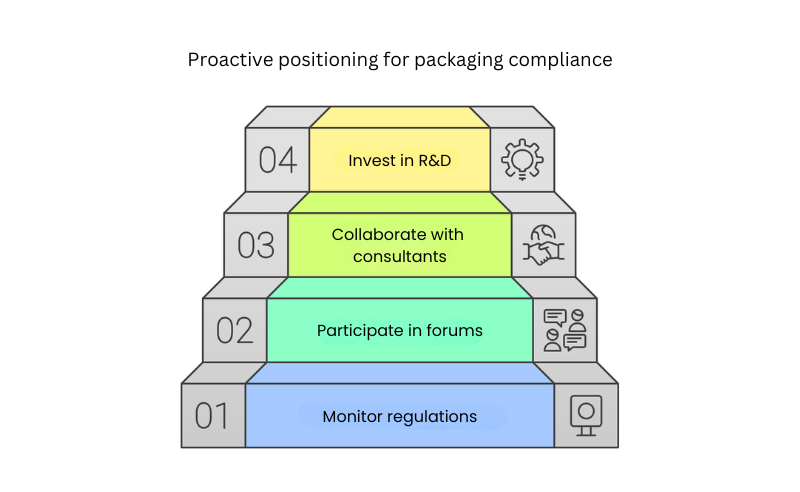Why It is Important to Stay Ahead of Packaging Regulations

As an essential element of the supply chain and global trade, packaging not only serves the function of protecting products, but also plays a key role in logistics efficiency and the end consumer experience.
In recent years, there has been increasing pressure from governments and international bodies to regulate packaging materials and designs to ensure consumer safety and to move towards sustainability and environmental protection.
In this context, complying with existing regulations will not be enough. Staying ahead of packaging regulations becomes a strategic necessity for companies. In this article, we look at how the packaging industry can cope with this complex scenario.
What are the risks of not complying with regulations?
Non-compliance with current packaging regulations can have serious consequences for companies. The main risks to which they would be exposed include:
- Financial and legal penalties: Companies could face fines, trade restrictions and even legal litigation, which could ultimately affect their finances and reputation.
- Loss of consumer trust: Given consumers’ growing interest in protecting their health by avoiding harmful substances that may come into contact with their food or the products they use, as well as caring for the environment, non-compliance with regulations can negatively affect the brand’s image. This can alienate more conscious and committed consumers, who prefer to support companies that demonstrate social and environmental responsibility.
- Barriers to export and entry into foreign markets: Considering the strict packaging requirements that many countries have implemented for imported products, non-compliance can lead to delays, returns or even prevent access to certain key markets.

Keeping up to date and ahead of the curve
To stay ahead of packaging regulations, it is essential to adopt a proactive approach to keep abreast of every upcoming update or innovation. Large companies often have specialised industry regulatory departments that allow them to manage these changes with agility.
However, small and medium-sized enterprises face greater challenges in this area. For them, an effective strategy is to associate at cluster level, such as the Packaging Cluster in Catalonia, of which we are a member, or to join international sectoral associations.
These networks not only facilitate access to relevant and up-to-date information, but also provide a platform for collective lobbying of European legislators, promoting balanced and sustainable regulations that benefit the entire industry.
This collaborative approach becomes a key tool to stay competitive in a constantly evolving regulatory environment.
It is important to constantly monitor national and international regulations in order to be aware of trends in packaging regulation and regulatory changes.
Similarly, participating in industry forums and subscribing to specialised newsletters are good practices to stay informed.
In addition, working with packaging and sustainability consultants ensures accurate interpretation of regulations and facilitates the implementation of customised solutions according to the products offered by the company.
Finally, investing in research and development (R&D) of innovative materials allows new technologies and sustainable solutions to be explored, placing companies in an optimal position in the face of future regulatory changes.

Conclusion
Getting ahead of packaging regulations is not only an obligation to ensure legal compliance in packaging, but also a strategic opportunity to optimise costs, improve sustainability and gain competitive advantage.
In an environment where regulations and consumer expectations are evolving rapidly, staying one step ahead is critical to business success.
Companies that act proactively not only ensure their permanence in the market, but also lead the way to a more sustainable and efficient future.
FAQs
Do packaging regulations affect all industries? Yes, all industries that use packaging must comply with specific regulations related to safety, environment and transport.
How do packaging regulations influence sustainability? Regulations encourage the use of recyclable and biodegradable materials, which contributes to waste reduction and environmental care.
What are the consequences of non-compliance? Non-compliance can result in financial penalties, damage to the company’s reputation and, in extreme cases, a ban on marketing products.
You may also be interested in: